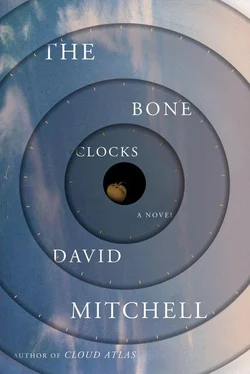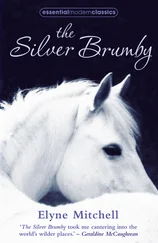“Indeed I have.” Claudette Davydov handed Galina her muff of white fur with murmured thanks. “And to judge from Miss Koskov’s surprise, we both wrote to the other in the mistaken belief that the other was a man — do I surmise correctly, Miss Koskov?”
“I cannot deny it, Mrs. Davydov,” I said, as we all sat down.
“Is it not too much like an absurd farce for the stage?”
“A wrongheaded world,” sighed Shiloh Davydov, “where women needs must deny their gender for fear that their ideas will be dismissed.”
We considered the truth of this. “Klara dear,” said Vasilisa, remembering her duty as hostess, “would you feed up the fire while Galina brings refreshments for our guests?”
“THE SEA IS my business, sir,” replied Shiloh Davydov. Dmitry found the Davydovs’ unexpected company to his liking, and for the men the tea and cakes were superseded by brandy and the box of cigars Shiloh had presented to my foster father. “Shipping, freight, shipyards, shipbuilding, maritime insurance …” He waved a hand vaguely. “I’ve journeyed to Petersburg at the behest of the Russian Admiralty, so naturally I must be discreet about details. We shall be employed here for a year at least, however, and I’ve been granted the use of a government house on Mussorgsky Prospect. Mrs. Koskov, how difficult will it be to engage domestic staff who are both capable and honest? In Marseille, I’m sorry to say, the combination is as rare as hen’s teeth.”
“The Chernenkos will help,” said Vasilisa. “For Dmitry’s uncle, Pyotr Ivanovich, and his wife, finding a few hen’s teeth is a small matter. Is it not, Dmitry?”
“They’ll come wrapped in a Golden Fleece, knowing Pyotr.” Dmitry puffed appreciatively on his cigar. “How do you intend to wile away your months in our frozen northern wastes, Mrs. Davydov?”
“Like my husband, I have the soul of an explorer,” said Claudette Davydov, as if that were a full answer. The fire spat sparks. “First, though, I intend to finish a commentary on Ovid’s Metamorphoses . I had even entertained hopes that ‘K. Koskov’ would pay me the honor of casting her eye over my scribblings, if …”
I said that the honor would be mine, and that we clandestine female scholars were duty-bound to band together. Then I asked if “C. Holokai” had received my last letter, sent the previous August to the Russian legate in Marseille.
“Indeed I did,” said Claudette Davydov. “My husband, whose love of philosophy is, as you see, as deep as my own, was as fascinated as I was to read about your notion of the Dusk.”
Now Vasilisa was curious. “What dusk would that be, dear?”
I disliked lying even by omission to my foster parents, but Atemporality in a Godless, godless universe was not a profitable topic of discussion in our pious household. As I fabricated a prosaic explanation, my glance fell on Shiloh Davydov. His eyes had half closed and a spot glowed in what I knew from my Eastern resurrections was a chakra-eye. I looked at Claudette Davydov. The same spot glowed. Something was happening. I looked at my foster parents and saw that Vasilisa and Dmitry Koskov were as still as living waxworks. Vasilisa still wore her look of concentration, but her mind appeared to have shut down. Or have been shut down. Dmitry’s cigar smoked in his fingers, but his body was motionless.
After twelve hundred years I had come to think of myself as immune to shock, but I was wrong. Time had not stopped. The fire still burned. I could still hear Galina chopping vegetables out in the kitchen. By instinct, I searched for a pulse in Vasilisa’s wrist and found it, strong and steady. Her breathing was slow and shallow but steady. The same was true for Dmitry. I said their names. They didn’t hear me. They weren’t here. There could be only one cause or, more likely, a pair of causes.
The Davydovs, meanwhile, had returned to normal and were awaiting my response. Standing, feeling out of my depth but furious, I grabbed the poker and told the Davydovs, or whatever the Davydovs were, in a manner not at all like a twenty-year-old Russian priest’s daughter, “If you’ve harmed my parents, I swear—”
“Why would we harm these sincere people?” Shiloh Davydov was surprised. “We’ve performed an Act of Hiatus on them. That’s all.”
Claudette Davydov spoke next: “We were hoping for a private audience with you, Klara. We can unhiatus your foster parents like that”—she clicked her fingers—“and they won’t know they were gone.”
Still viewing the Davydovs as threats, I asked whether a “hiatus” was a phenomenon akin to mesmerism.
“Franz Mesmer is a footling braggart,” replied Claudette Davydov. “We are psychosoterics. Psychosoterics of the Deep Stream.”
Seeing that these words only baffled me, Shiloh Davydov asked, “Have you not witnessed anything like this before, Miss Koskov?”
“No,” I replied. The Davydovs looked at each other, surprised. Shiloh Davydov removed the cigar from Dmitry’s fingers before it scorched them, and rested it in the ashtray. “Won’t you put that poker down? It won’t help your understanding.”
Feeling foolish, I replaced the poker. I heard horses’ hoofs, the jink of bridles, and the cries of a coalman on Primorsky Prospect. Inside our parlor my metalife was entering a new epoch. I asked my guests, “Who are you? Truly?”
Shiloh Davydov said, “My name is Xi Lo. ‘Shiloh’ is as close as I can get in Europe. My colleague here, who is obliged to be my wife in public, is Holokai. These are the true names we carry with us from our first lives. Our souls’ names, if you will. My first question for you , Miss Klara Koskov, is this: What is your true name?”
In a most unladylike way, I drank a good half of Dmitry’s brandy. So long ago had I buried the dream that I’d one day meet others like me, other Atemporals, that now it was happening, I was woefully, woefully unprepared. “Marinus,” I said, though it came out as a husky squeak, thanks to the brandy. “I am Marinus.”
“Well met, Marinus,” said Claudette Holokai Davydov.
“I know that name,” frowned Xi Lo — in — Shiloh. “How?”
“You would not have slipped my mind,” I assured him.
“Marinus.” Xi Lo stroked his sideburns. “Marinus of Tyre, the cartographer? Any connection? No. Emperor Philip the Arab had a father, Julius Marinus. No. This is an itch I cannot scratch. We glean from your letter that you’re a Returnee, not a Sojourner?”
I confessed that I didn’t understand his question.
The pair looked unsettled by my ignorance. Claudette Holokai said, “Returnees die, go to the Dusk, are resurrected forty-nine days later. Sojourners, like Xi Lo here, just move on to a new body when the old one’s worn out.”
“Then, yes.” I sat back down. “I suppose I am a Returnee.”
“Marinus.” Xi Lo — in — Shiloh watched me. “Are we the first Atemporals you ever met?”
The lump in my throat was a pebble. I nodded.
Claudette-Holokai stole a drag of her companion’s cigar. “Then you’re handling yourself admirably. When Xi Lo broke my isolation, the shock drove away my wits for hours. Some may say they never returned. Well. We bear glad tidings. Or not. There are more of us.”
I poured myself more brandy from Dmitry’s decanter. It helped to dissolve the pebble. “How many of you — of us — are there?”
“Not a large host,” Xi Lo answered. “Seven of us are affiliated in a Horological Society housed in a property in Greenwich, near London. Nine others rejected our overtures, preferring isolation. The door to them stays open if they ever wish for company. We encountered eleven — or twelve, if we include the Swabian—‘self-elected’ Atemporals down the centuries. To cure these Carnivores of their predatory habits is a principal function of us Horologists, and this is exactly what we did.”
Читать дальше












